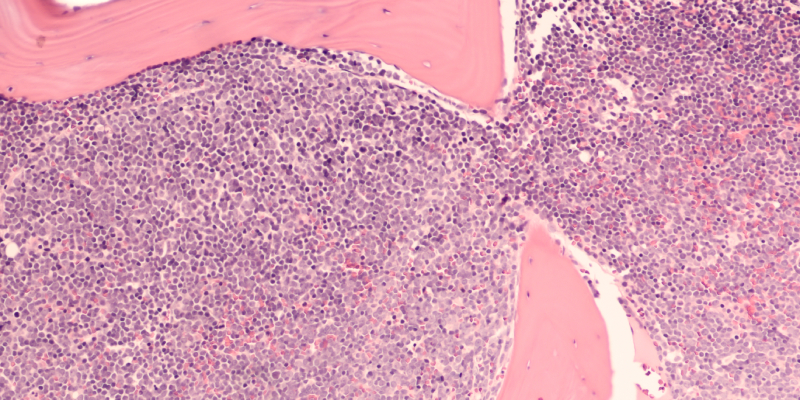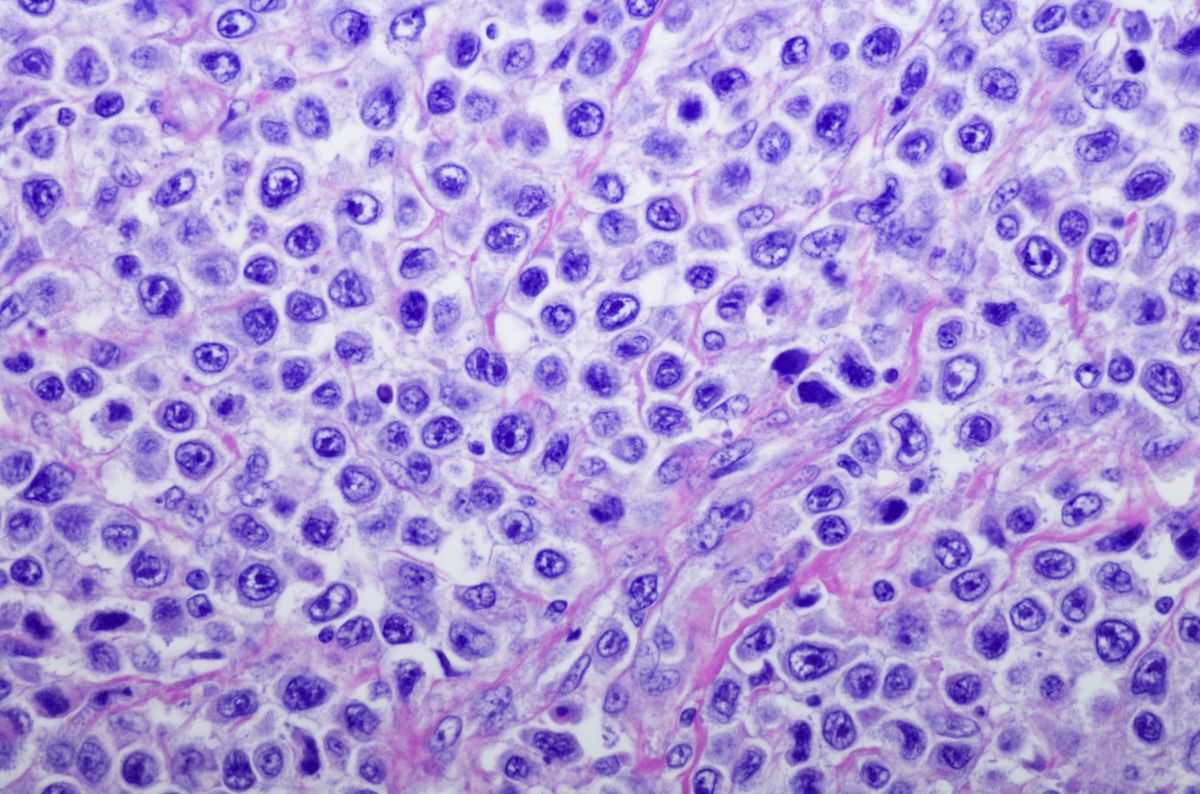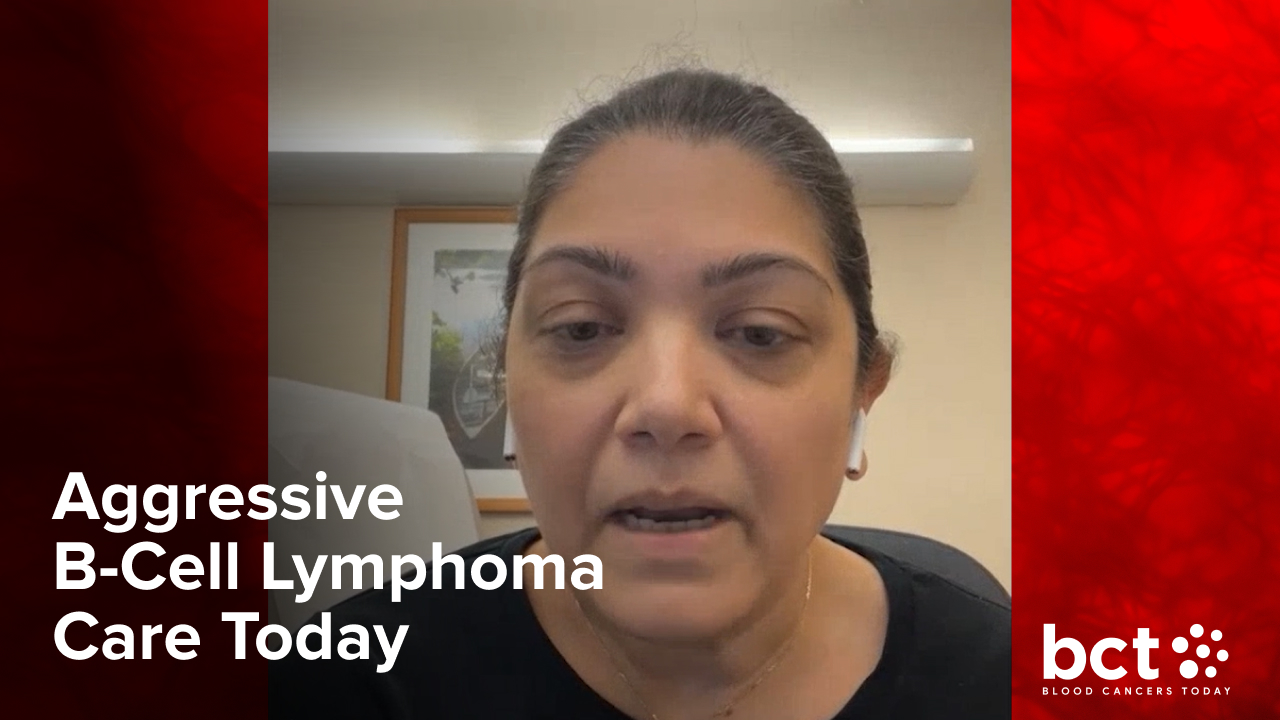
A real-world study showed that R-DA-EPOCH (rituximab, dose-adjusted etoposide, prednisone, vincristine, cyclophosphamide, and doxorubicin) is a “highly effective regimen” to treat primary mediastinal large B-cell lymphoma (PMBL). The results were presented during the 2022 American Society of Hematology Annual Meeting.
The study, led by Anna Santarsieri, MBBS, of Cambridge University Hospitals National Health Service Foundation Trust and colleagues, was prompted by reports that dose-intensified regimens such as R-CHOP14 (rituximab, cyclophosphamide, hydroxydaunorubicin, oncovin, and prednisone), R-VACOP-B (rituximab, etoposide, doxorubicin, cyclophosphamide, vincristine, prednisone, and bleomycin), and R-DA-EPOCH deliver better outcomes than R-CHOP21 with reduced requirement for radiotherapy and associated long-term risks.
The retrospective study followed 122 adults from nine centers in England, Scotland, and Australia who were treated with first-line R-DA-EPOCH for PMBL in 2010 to 2022, with a median follow-up of 3.2 years (range, 0.3-11.6 years). Patients were a median of 34.1 years at diagnosis.
The majority of patients received six cycles of R-DA-EPOCH (87%); only 4% completed less than five cycles. Of note, 13% of patients received R-CHOP as their first cycle of chemotherapy for stabilization before commencing R-DA-EPOCH.
The use of interim positron emission tomography (PET) scan and a computed tomography varied between institutions, with 72% (n=88) having an interim PET after two (n=54), three (n=30), or four (n=4) cycles. Likewise, end-of-treatment PET was performed in 85% of patients (n=104), being omitted in certain patients who had achieved a metabolic remission on interim PET.
The three-year progression-free survival was 92.8% (95% CI, 88.1-97.7), and three-year overall survival was 97.2% (95% CI, 94.2-100). There were eight progression events, with six cases of primary refractory disease at or before the end-of-treatment PET scan, and two relapses at six and seven months after completing chemotherapy, the investigators reported.
Of the 98 patients followed beyond one year, no relapses were observed. The investigators noted four deaths, three due to refractory disease and one due to complications of allogeneic transplant.
A total of 121 patients had at least one PET scan, 74% (n=90) of whom achieved complete molecular remission (CMR) on either interim or end-of-treatment PET or both, and the negative predictive values for relapse after achieving CMR on interim or end-of-treatment PET were 97.2% and 97.3%, respectively.
“In conclusion, with this large, multicenter, real-world dataset with long-term follow-up, we demonstrate that R-DA-EPOCH is a highly effective regimen to treat PMBL and that potentially, end-of-treatment PET has little additional utility in patients with CMR on interim PET,” the authors wrote.
Reference
Santarsieri A, Bennet R, Hopkins D, et al. R-DA-EPOCH Treatment is highly effective therapy for primary mediastinal large B-cell lymphoma: a real-world multi-centre retrospective evaluation. Abstract #4298. Presented at the 64th ASH Annual Meeting and Exposition; December 10-13, 2022; New Orleans, Louisiana.






 © 2025 Mashup Media, LLC, a Formedics Property. All Rights Reserved.
© 2025 Mashup Media, LLC, a Formedics Property. All Rights Reserved.